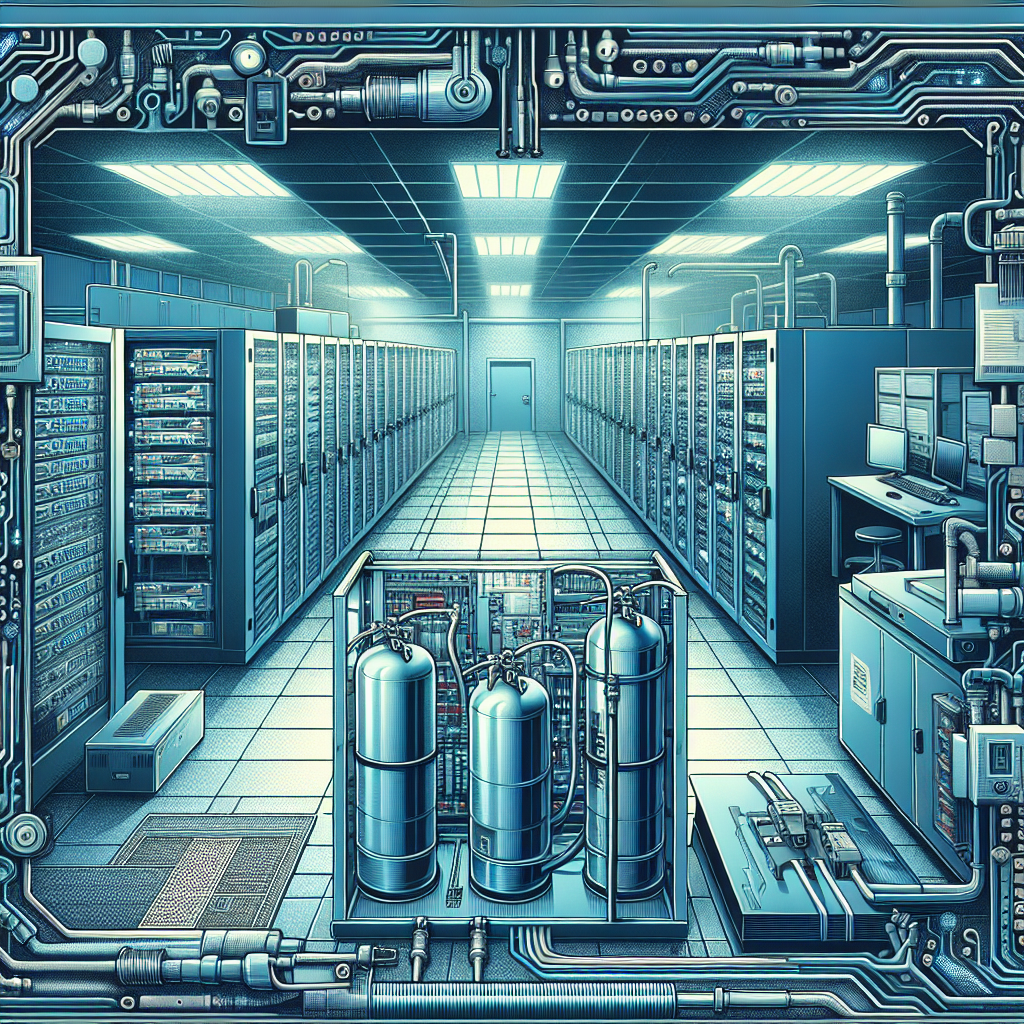In today’s digital age, data centers are crucial for storing, processing, and managing vast amounts of information. As such, protecting these facilities from potential threats, such as fires, is of utmost importance. A fire in a data center can lead to catastrophic data loss, downtime, and financial losses. To prevent this, data center operators must implement effective fire suppression systems.
There are several types of fire suppression systems available for data centers, each with its own set of advantages and disadvantages. It is crucial for data center operators to carefully assess their needs and choose the system that best fits their requirements. Here is a guide to some common fire suppression systems used in data centers:
1. Water-based systems: Water-based fire suppression systems are the most traditional and cost-effective option. These systems use water to extinguish fires, either through sprinklers or deluge systems. While effective, water-based systems can cause water damage to sensitive equipment and may not be suitable for all types of data centers.
2. Gas-based systems: Gas-based fire suppression systems use inert gases, such as FM-200 or CO2, to extinguish fires. These systems are effective at suppressing fires quickly without causing damage to equipment. However, gas-based systems can be costly to install and maintain, and the gases used may pose health risks to personnel.
3. Foam-based systems: Foam-based fire suppression systems use a mixture of water and foam to suppress fires. These systems are effective at extinguishing fires involving flammable liquids, such as diesel fuel or oil. However, foam-based systems can be messy and may require special cleanup procedures.
4. Dry chemical systems: Dry chemical fire suppression systems use dry chemicals, such as ABC powder, to extinguish fires. These systems are effective at suppressing fires involving flammable liquids and electrical equipment. However, dry chemical systems can be corrosive to equipment and may require thorough cleanup after use.
When selecting a fire suppression system for a data center, it is essential to consider factors such as the type of equipment, the size of the facility, and the potential fire risks. Data center operators should also ensure that their chosen system complies with industry standards and regulations.
In addition to implementing a fire suppression system, data center operators should also have proper fire detection and alarm systems in place. Regular maintenance and testing of fire suppression systems are also crucial to ensure their effectiveness in the event of a fire.
In conclusion, ensuring data center protection through effective fire suppression systems is essential for safeguarding critical information and preventing costly downtime. By carefully evaluating their needs and choosing the right system, data center operators can minimize the risk of fire-related disasters and protect their valuable assets.


Leave a Reply